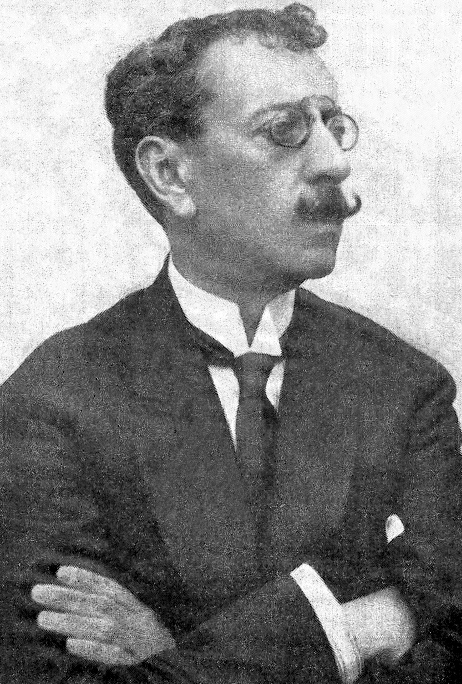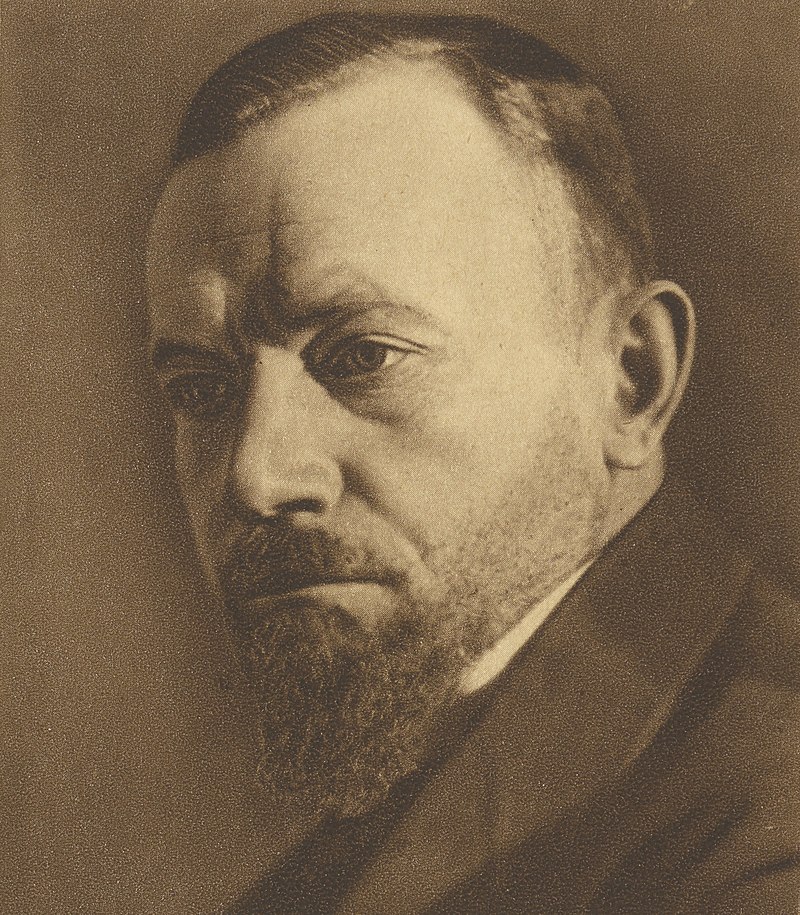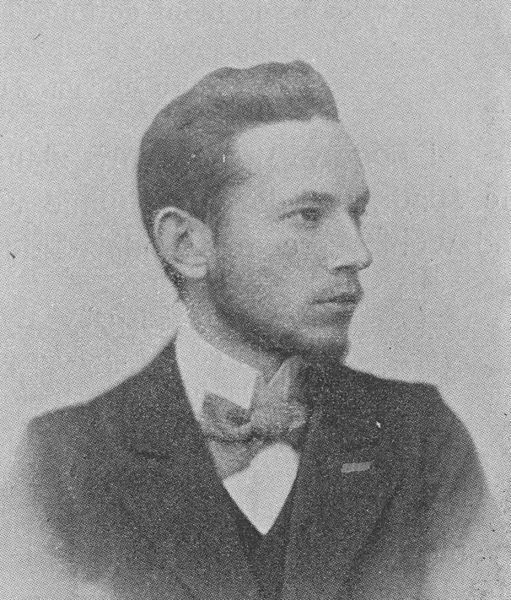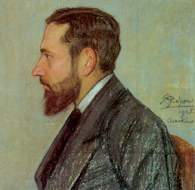<Back to Index>
- Poet Olavo Brás Martins dos Guimarães Bilac, 1865
- Poet Leopold Staff, 1878
PAGE SPONSOR

Olavo Brás Martins dos Guimarães Bilac (December 16, 1865 – December 28, 1918) was a Brazilian Parnassian poet, journalist and translator. Alongside Alberto de Oliveira and Raimundo Correia, he was a member of the "Parnassian Triad". Elected the "Prince of Brazilian Poets" in 1907 by the magazine Fon-Fon, he is famous for writing the lyrics of the Brazilian Flag Anthem.
He founded and occupied the 15th chair of the Brazilian Academy of Letters, from 1897 until his death in 1918. He is also the patron of the military service in Brazil, due to his campaigns in favor of the conscription.
Bilac was born in the city of Rio de Janeiro, to Brás Martins dos Guimarães Bilac and Delfina Belmira dos Guimarães Bilac. As a young man, he was a brilliant student, gaining acceptance to Faculdade de Medicina da Universidade Federal do Rio de Janeiro at the age of 15.
He began studying medicine, but did not finish the course. He also tried to study Law at the Faculdade de Direito da Universidade de São Paulo, but did not finish the course either. Instead, he found pleasure in writing and journalism.
His first work was the sonnet "Sesta de Nero" ("Nero's Nap") in the newspaper Gazeta de Notícias, in 1884, which received praise from Artur Azevedo.
In addition to poetry, Bilac wrote publicitary texts, chronicles, schoolbooks, children's poetry and satirical works. In 1891, he was arrested at the Fortaleza da Laje in Rio de Janeiro, for opposing the government of Floriano Peixoto.
Bilac would never marry; thus, he never had children. Initially, he was engaged to Amélia de Oliveira, sister of poet Alberto de Oliveira. But their engagement was short lived, since it was opposed by another brother of Amélia, who said Bilac had no future. He would have an even shorter engagement with Maria Selika, daughter of a violinist named Francisco Pereira da Costa. A legend has it that Amélia was very faithful to Bilac: she never married and, when Bilac died, she put a lock of her hair in his coffin.
Bilac died in 1918. His last words were "Give me coffee! I'm going to write!".
In 1897, Bilac lost control of his car, crashing it in a tree. He was the first person that suffered a car accident in Brazil.



Leopold Staff (14 November 1878 in Lemberg [now Lviv, Ukraine] – 31 May 1957 in Skarżysko - Kamienna) was a Polish poet and one of the greatest artists of European modernism honored two times by honorary degrees (honoris causa). He was also nominated for the Nobel Prize in Literature. Representative of classicism and symbolism in the poetry of Young Poland, an author of many philosophical poems strong influenced by the idea of the Übermensch, the ideas of the Franciscan order, and paradoxes of Christianity.
He was born in Lviv (Lemberg), Austria - Hungary and died in Skarżysko - Kamienna. Staff was highly influential in the literary life of Julian Tuwim, one of Poland's most renowned poets.
Staff's writing can be divided into three periods: Young Poland, Interwar period and postwar Poland.
In the early 20th century, Staff became probably the most famous and influential Polish poet. He called his popularity as a retiring, soft glory. In the 1950s, he faced to blank verse close up to avant garde. He was also the main guru for Polish group of experimental poets named Skamander.
Some of his poetry includes The Bridge, Foundations and Three Towns.